The year 2022 ended for the Indian judiciary on two different notes. The first being of reassertion by the Supreme Court which gave a clear message to the executive that it is not going the cede its ground. The second was what can be termed a mild embarrassment for the judiciary.
On 16 December, Chief Justice of India DY Chandrachud made it clear that no Supreme Court bench will be available from 17 December till 1 January during the ensuing winter vacations.
Vacation benches are constituted during long summer vacations only and the absence of benches during winter vacations has been a norm. However, this routine affair assumed importance on 15 December, when Union Law Minister Kiren Rijiju in a statement made in Rajya Sabha said that there was a feeling among the people that long court vacations were not very convenient for justice seekers.
While this categorical reassertion in a matter of its functioning by the apex court tilted the balance in the favour of the judiciary in the ongoing tug-of-war with the government. However, the news of former Chief Justice of India (CJI) UU Lalit having employed more than 40 peons and support staff at his official residence during his 74-day tenure as CJI will surely embolden the executive to launch a fresh volley of scrutiny on the functioning of the judiciary.
According to a report published by The Times of India even after his retirement, 28 peons and support staff are still working at his residence.
For the Indian judiciary, the year 2022 was marked by some landmark judgments, the prevalence of some old issues and some historic developments.
Quick Reads
View AllOne of the criticisms that have been heaped on the Indian judiciary is that of lack of transparency in its functioning ranging from the appointment of judges to its day-to-day functioning. To dispel and counter this criticism in some measure in September the Supreme Court in a laudable move started live-streaming important cases heard by the constitutional bench. It was the current CJI Justice Chandrachud who spearheaded the live-streaming project. The apex court in a statement also ensured that “attempts will now be made to live-stream proceedings in all important matters before it becomes the order of the day”.
The year 2022 was also unusual for the top office of the Indian judiciary. On one hand, the Supreme Court saw three chief justices in a year, out of which two took the oath within a span of six months. On the other hand, it also got a chief justice who will have a two-year tenure, one of the longest for a chief justice of the apex court in a long time.
Supreme court continued with its illustrious tradition of upholding individual liberty and dignity
Any criticism of the Indian judiciary especially the Supreme Court cannot overshadow the fact that the Supreme Court which is the most powerful safeguard provided to the citizens against any arbitrary action of the State has an illustrious history of safeguarding individuals’ rights to life and liberty. From Maneka Gandhi versus Union of India to ADM Jabalpur versus Shivkant Shukla, there are shining examples where India’s apex court through concurrent view and at times through dissent has expressed its unwavering commitment toward the due process of law.
This year was not an exception. Through its various judgments, the apex court upheld and, in many cases, widened the scope of individual liberty and dignity. In a judgment that will ensure that rape and sexual assault survivors are saved from further pain and trauma, the Supreme Court bench of Justices DY Chandrachud and Hima Kohli banned the “Two-Finger Test” that is conducted on rape and sexual assault survivors.
The bench while issuing strict instructions to ban this practice said, “This court has time and again deprecated the use of two finger test in cases alleging rape and sexual assault. The so-called test has no scientific basis. It instead re-victimizes and re-traumatizes women.” In another significant judgment the apex court bench consisting of Justices DY Chandrachud, AS Bopanna and JB Pardiwala held that all women, irrespective of their marital status are entitled to safe and legal abortion. The judgment held that “This artificial distinction between married and single women is not constitutionally sustainable. The benefits in law extend equally to both single and married women.”
This year also saw the apex court giving its verdict on the much contentious issue of the hijab ban imposed by the Karnataka government. In a split verdict, Justice Hemant Gupta upheld the ban in the “interests of unity, equality, and public order” while the other judge on the bench Justice Sudhanshu Dhulia disagreed with the Karnataka High Court order of upholding the ban. “If the belief is sincere, and it harms no one else, there can be no justifiable reasons for banning hijab in a classroom,” wrote Justice Dhulia in his judgment.
One of the most misused sections of the Indian Penal Code (IPC) has been Section 124A which makes sedition a punishable offence. The apex court on May 11 held that “All pending trials, appeals, and proceedings with respect to the charge framed under Section 124A of the IPC be kept in abeyance”. It is an incontestable fact that the sedition law has been misused by all governments to intimidate and silence its critics. The re-examination of the utility of this 152-year-old archaic law was much needed.
One of the most important and debatable issues which was adjudicated by the apex court this year was related to the reservations given to the economically weaker section (EWS) in education and employment. In 2019, the Parliament has enacted the Constitution (One Hundred and Third Amendment) Act, 2019 which enabled the state to make reservations in higher education and matters of public employment on the basis of economic criteria alone.
The amendment was challenged in the court on the ground that reservations cannot be accorded solely on the economic criteria and other groups like scheduled caste/tribes (SC/ST) and other backward castes (OBCs) cannot be excluded from economic reservations, as this would violate the fundamental right to equality. However, the apex court in a split verdict of 3:2 declared that the Amendment and EWS Reservations were constitutionally valid.
Some shining examples from high courts
Apart from the apex court, there were some important judgments delivered by the high courts too. Delhi High Court on 11 May, delivered its verdict on the bunch of petitions challenging the constitutional validity of the exception granted to ‘marital rape’ in the IPC. The division bench consisting of Justices Rajiv Shakdher and Hari Shankar gave a split judgment, with Justice Rajiv Shakdher declaring the exception to marital rape as enshrined in Section 375 of Indian Penal Code as unconstitutional and Justice Hari Shankar upholding the constitutional validity of the exception clause.
In a significant judgment, Calcutta High Court has held that a sentence of imprisonment for life without the possibility of remission can only be granted by the trial Courts in rape cases and no other cases. The high court while citing several apex court judgments held that except for cases where the law provides for a sentence of imprisonment for life, which means imprisonment till the remainder of that person’s natural life, as is provided in sections 376A, 376AB, 376D, 376DA, 376DB and 376E of IPC, trial courts while imposing a sentence of life imprisonment as is provided in section 53 IPC, cannot qualify the said sentence by adding that the sentence shall continue till the remainder of that person’s natural life.
The court also held that such right rests solely with the Supreme Court or the high courts which can grant such punishment while commuting a sentence of death to that of imprisonment for life.
Problems of ‘subordinate’ judiciary continue
While the higher judiciary consisting of the Supreme Court and the high courts had their own share of highs and lows, for the lower judiciary or the subordinate courts things remain unchanged. Reeling under an infrastructure deficit and a large number of cases, it continued its work silently. The fact is that there are over 4.8 crore cases that are pending in courts across different levels of the judiciary. Of them, 87.4 per cent are pending in subordinate courts.
The subordinate courts are the court of trial where the first examination of evidence and witnesses is done. It is the first court where the merit of important cases related to the gravest offences like homicide and rape is scrutinised. It cannot be denied that with the dismal state of infrastructure that most lower courts have and the huge caseload, a fair trial becomes a tough task. But like in the past years, this year too, this issue was not taken that seriously, apart from being discussed at a few seminars and conferences.
‘Courting’ controversies
This year too witnessed a good number of controversies related to the functioning of the higher judiciary. The decision of transferring Gujarat High Court judge Justice Nikhil Kariel caused a huge uproar in November this year. Gujarat High Court Advocates’ Association who termed Justice Nikhil Kariel as the ‘finest, upright, honest and unbiased’ judge staged a huge protest against his transfer. The advocates’ association in a statement said that “Transfer of such an honest and upright Judge for which the entire Bar is vouching in one voice is not in the right taste and is being strongly opposed as it strikes at the Rule of Law and Independence of Judiciary which are two prime edifices on which our Constitution rests.” Following the huge opposition, Justice Kariel’s transfer was put on hold.
In wake of the controversy, a senior Supreme Court Advocate and former president of the Supreme Court Bar Association of India wrote in the Indian Express that highlighted the seriousness of the issue. He wrote, “If indeed the judges transferred are fiercely independent as the Bar feels, their transfers will send a chilling message to all those young and competent members of the Bar who may wish to become judges.”
He made an important point when he highlighted the fact that, “The desire to protect the independence of the judiciary was the bedrock of the Supreme Court’s subsequent decision in 2016 declaring the Constitution (99th Amendment) Act, including Article 124 A of the Constitution — National Judicial Appointments Commission — to be unconstitutional. Yet, time and again, decisions of the collegium have raised serious doubt about their intentions to protect the independence of the judiciary and to select the best from amongst those available, much less to act only to “subserve public purpose and to promote public interest.”
Another controversy that was much talked about was related to former CJI UU Lalit who while making a departure from the settled norm wrote a letter to fellow members of the Supreme Court collegium seeking their nod for the appointment of judges to the Supreme Court.
It created news as in the normal practice the names of those recommended for appointment as an apex court judge are discussed orally and never a name approved or disapproved is conveyed in the writing.
The two judges on the collegium objected to the letter written by the CJI, stating that penning down reasons for approval and disapproval against the names that were suggested if put in the public domain, will look very disgraceful for the person concerned.
Dispensation of justice should be the priority
As the year comes to an end, the tussle between the judiciary and the executive will be the most talked about event of the year. Judiciary has been reasserting itself with every attempt of the executive to browbeat it. However, it is unlikely that the executive is in any mood to buckle down this time. This tug-of-war might get intense in the new year as the court reopens.
But the question that needs to be asked is whether this is for any good for the dispensation of justice for a common man. If not, hopefully, 2023 is marked by events that are more about strengthening the justice delivery system than some turf war and useless controversies.
The writer is a journalist and researcher based in Delhi. He has worked with The Indian Express, Firstpost, Governance Now, and Indic Collective. He writes on Law, Governance and Politics. Views expressed are personal.
Read all the
Latest News,
Trending News,
Cricket News,
Bollywood News,
India News and
Entertainment News here. Follow us on
Facebook,
Twitter and
Instagram.


)
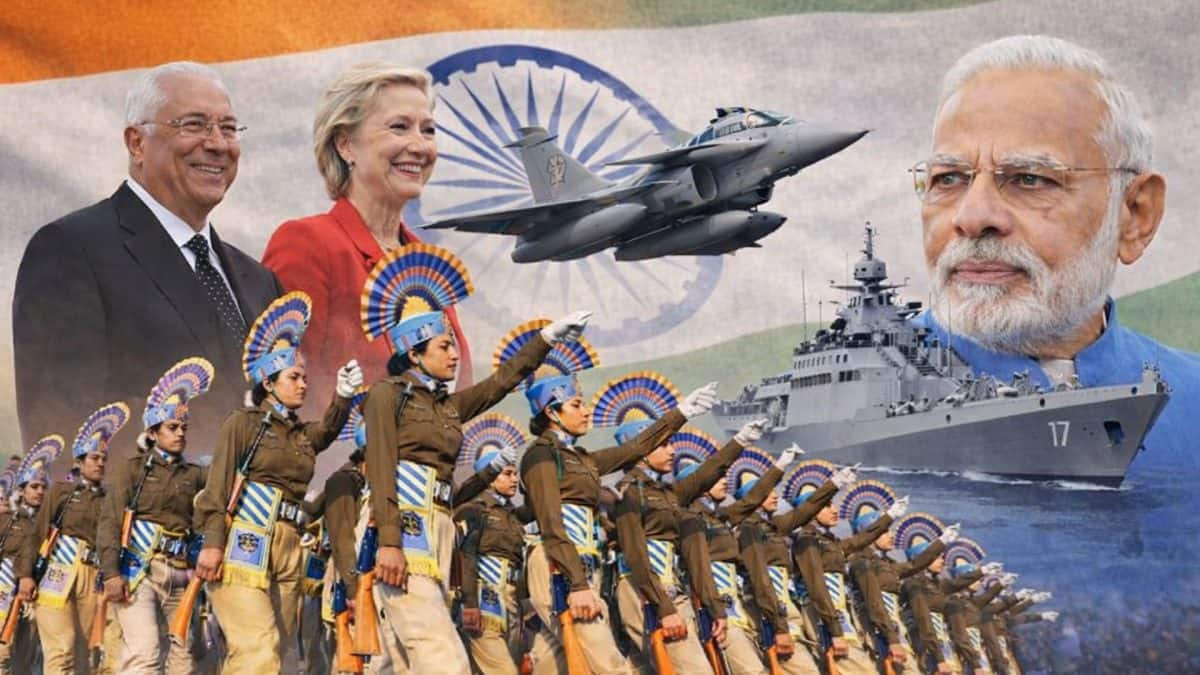
)
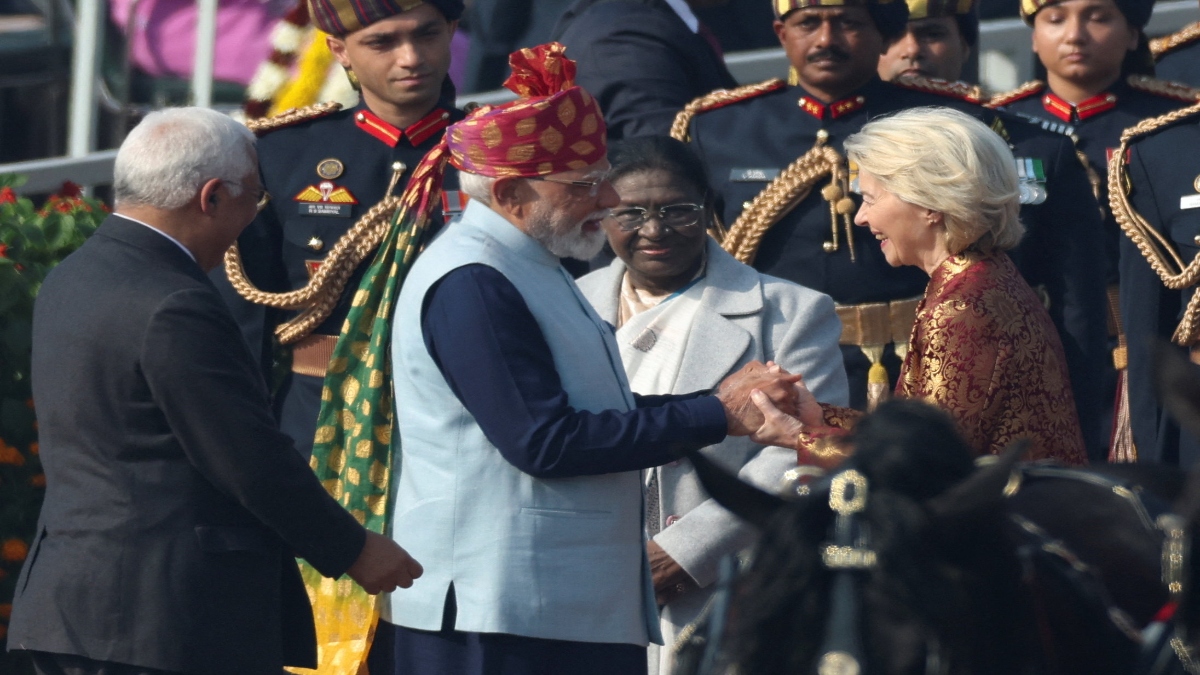)
)
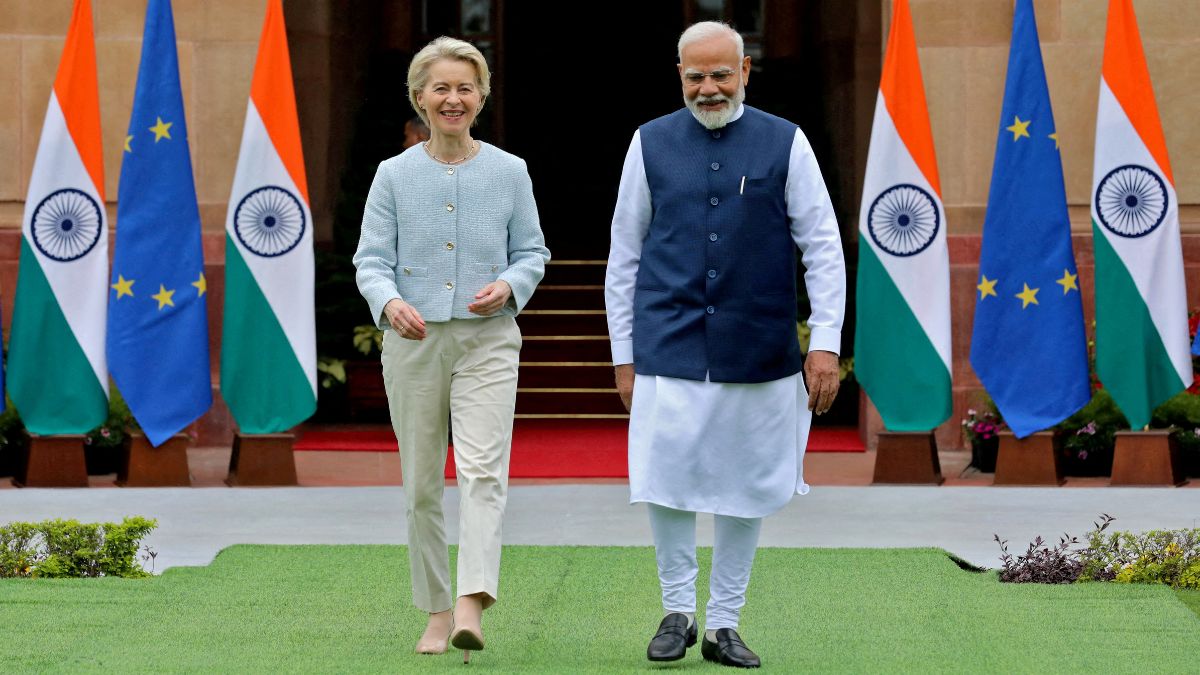)
)
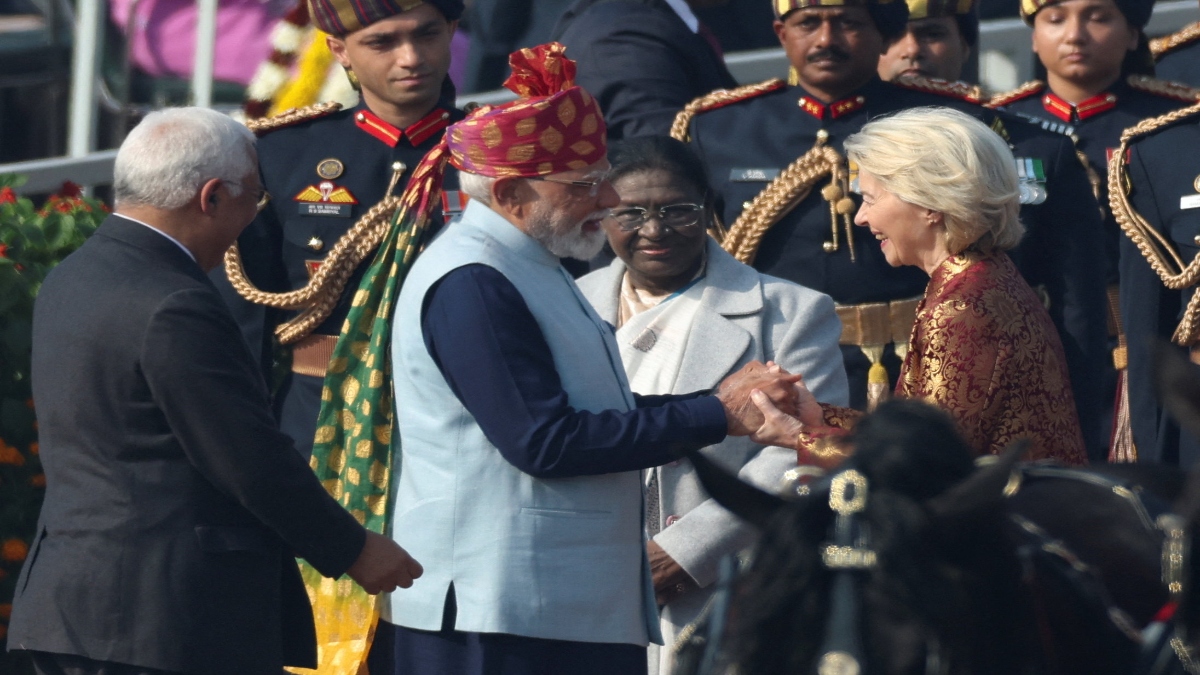)
)
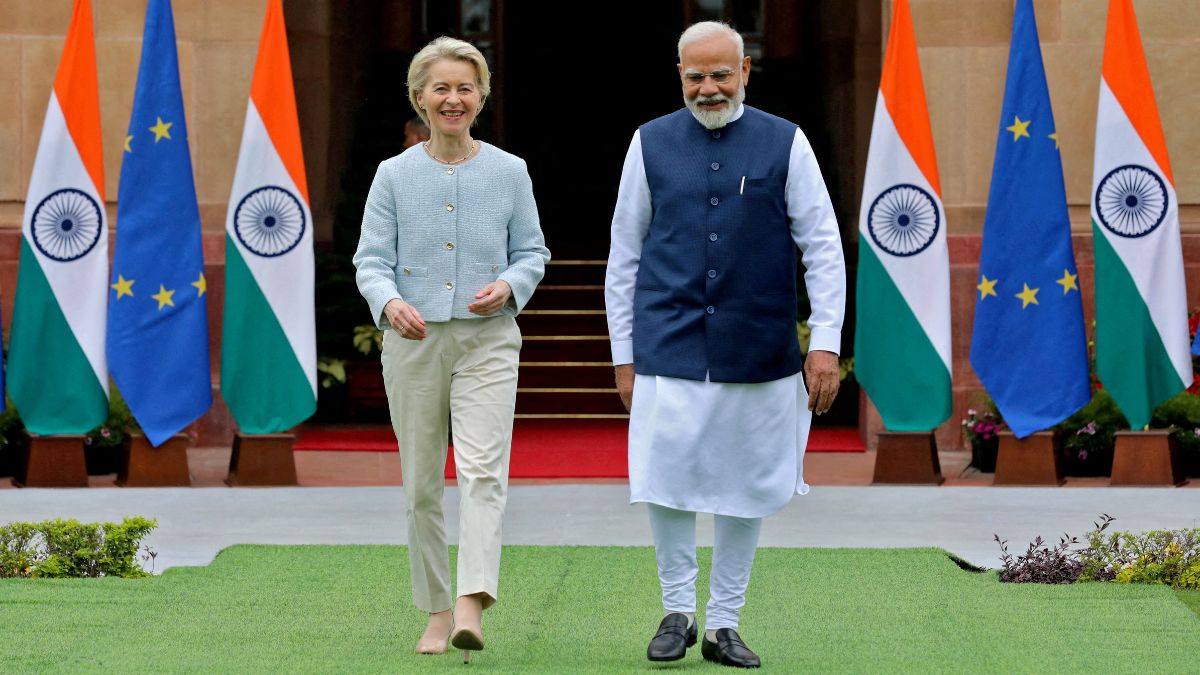)



